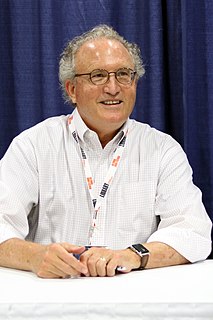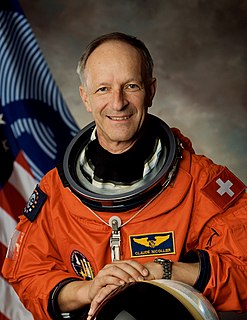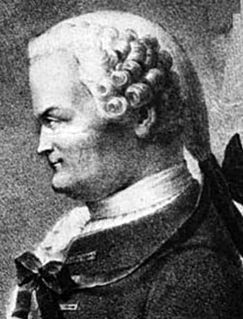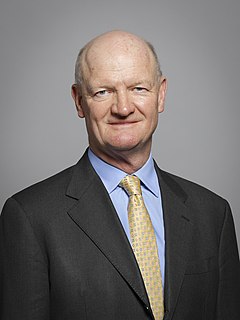A Quote by Mark Bowden
...Which brings me to the Hubble Space Telescope's newest images. If it's wonder that you're looking for, and mystery, don't just scan the photographs. Stop and think about them. Try to imagine the scale. The Earth is just a speck of dust on one distant whirling tentacle of the Milky Way galaxy, which contains billions of stars. A 'collision' of galaxies seems unimaginably large - and yet it is something scientists long ago imagined... The imaginings of pseudoscience are feeble by comparison.
Quote Topics
About
Billions
Brings
Collision
Comparison
Contains
Distant
Dust
Earth
Feeble
Galaxies
Galaxy
Hubble
Hubble Space Telescope
Images
Imagine
Imagined
Just
Large
Long
Long Ago
Looking
Me
Milky Way
Mystery
Photographs
Pseudoscience
Scale
Scan
Scientists
Seems
Something
Space
Speck
Stars
Stop
Telescope
Them
Think
Try
Way
Which
Wonder
Related Quotes
We live on a hunk of rock and metal that circles a humdrum star that is one of 400 billion other stars that make up the Milky Way Galaxy which is one of billions of other galaxies which make up a universe which may be one of a very large number, perhaps an infinite number, of other universes. That is a perspective on human life and our culture that is well worth pondering.
In this model, the sun is a very tiny speck of dust indeed-a speck less than a three-thousandth of an inch in diameter ... Think of the sun as something less than a speck of dust in a vast city, of the earth as less than a millionth part of such a speck of dust, and we have perhaps as vivid a picture as the mind can really grasp of the relation of our home in space to the rest of the universe.
We are here because over billions of years, countless variables fell into place, any of which could have taken another path. We are essentially a beautiful fluke, as are the millions of other species with which we share this planet. Our cells are composed of atoms and dust particles from distant galaxies, and from the billions of living organisms that inhabited this planet before us.
"I think I know the real reason." "Which is?" "Alcohol in the dust clouds. Goddamn stuff is everywhere. Any lousy species ever invents the telescope and the spectroscope and starts looking in between the stars, what do they find?" He knocked the glass on the table. "Loads of stuff, but much of it alcohol." He drank from the glass. "Humanoids are the galaxy's way of trying to get rid of all that alcohol."
I have never really got used to being on this earth. Sometimes I think our presence here is due to a cosmic blunder, that we were meant for another planet altogether, with other arrangements, and other laws, and other, grimmer skies. I try to imagine it, our true place, off on the far side of the galaxy, whirling and whirling. And the ones who were meant for here, are they out there, baffled and homesick, like us? No, they would have become extinct long ago. How could they survive, these gentle earthlings, in a world that was made to contain us.





































